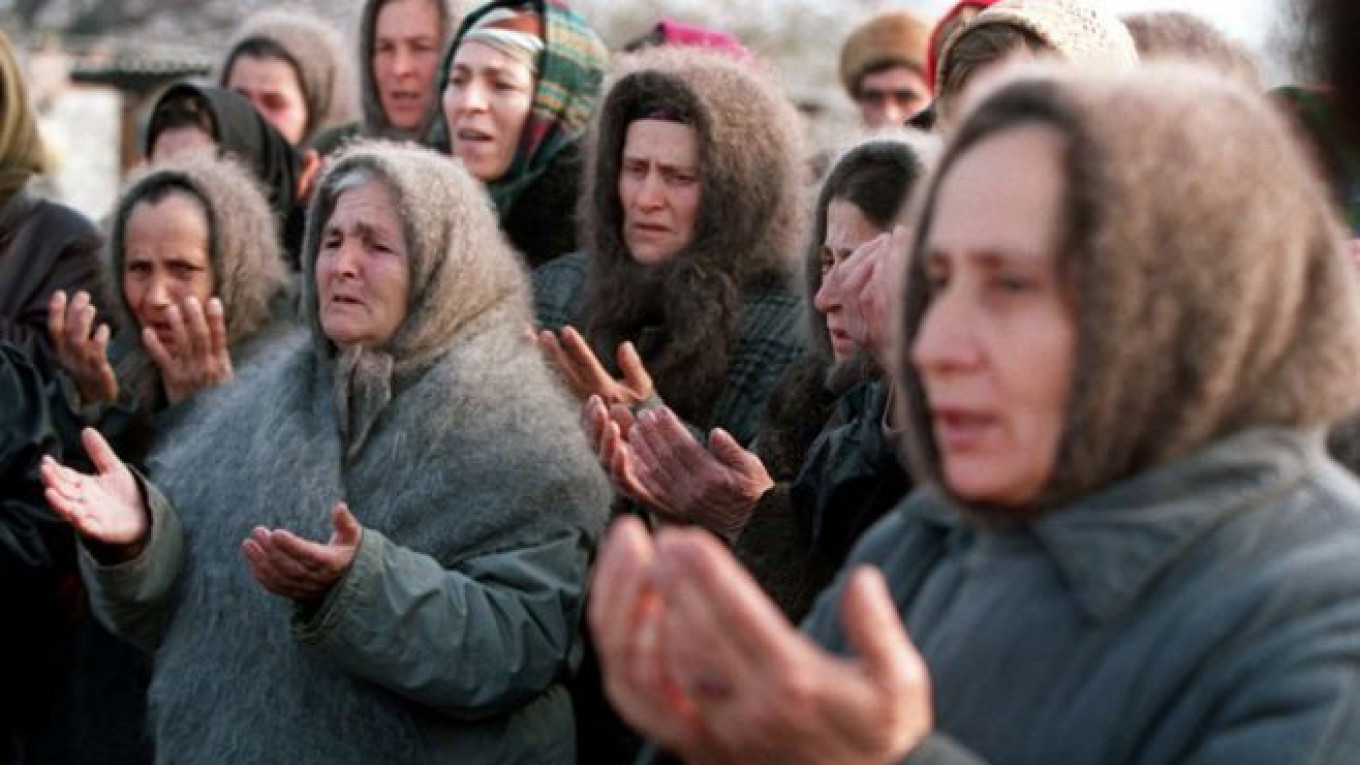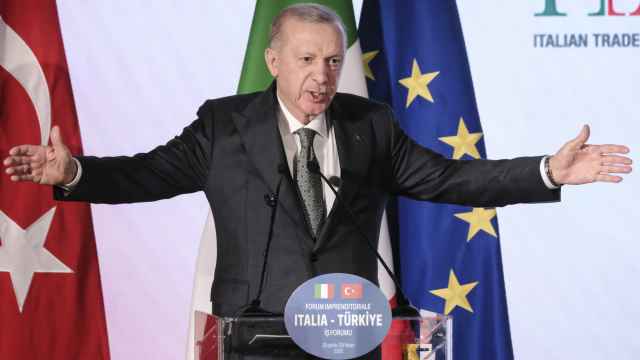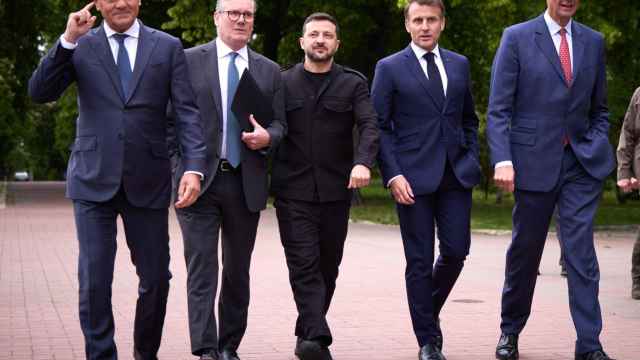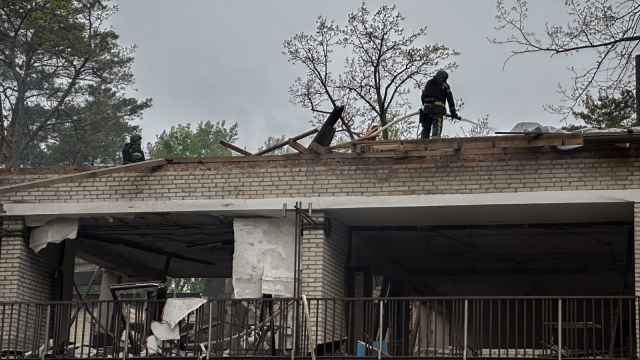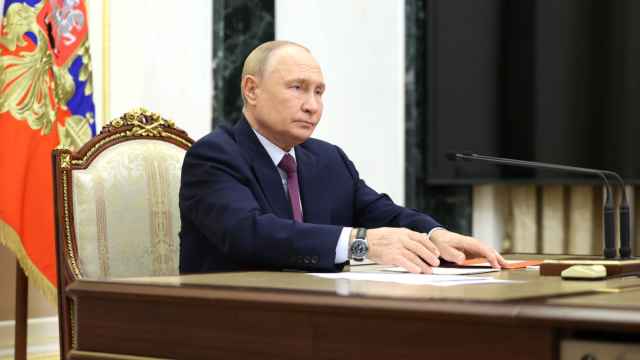Seventy years after Chechens were deported en masse to Central Asia on the orders of Soviet dictator Josef Stalin, a film about the brutalities of the operation has been banned, with officials citing the threat of provoking ethnic enmity.
Russia's Culture Ministry has also cited insufficient evidence to prove that the dramatic enactment is historically accurate, the film's producer and director Ruslan Kokanayev said on his Facebook page.
At the center of the dispute is a scene, featured in a movie trailer that the filmmaker has posted online, that shows Chechen prisoners in the mountainous village of Khaibakh— in what was then the Chechen-Ingush Soviet autonomous republic— being locked up in a barn by Stalin's secret police and burned alive.
Though the film titled "Ordered to Forget" makes no claims to being a historical documentary, Kokanayev has insisted that its plot, including the barn scene, is based on detailed testimony by multiple witnesses — several of whom he named in press interviews— and on historical evidence.
But head of the Culture Ministry's cinematographic department Vyacheslav Telnov said in a letter to Kokanayev that the ministry had found no evidence in secret police archives to back up the barn incident, calling the film's depiction a "historical falsehood," the filmmaker said.
The Culture Ministry has argued that the film is based on a single letter by former secret police General Mikhail Gvishiani "about having been forced to eliminate people there," Kokanayev told BBC.
But the fim director said the barn scene was based on interviews with several Chechen historians, including university professor Khizri Khadzhiyev and head of Chechnya's archive service Magomed Muzayev, on the testimony of a survivor, Mumady Elgakayev, who was 8 years old at the time, as well as on a video testimony of a then- deputy justice minister of the region, Dziyaudin Malgasov.
The problem seems to be that the film deals not only with the forced deportation of hundreds of thousands of Chechens in 1944 —which has been acknowledged by the Russian government — but with additional brutalities that were supposedly committed in the process, Kokanayev said in an interview with BBC this week.
"Nobody before had publicly talked about the fact that people who were unfit for transportation were physically destroyed," Kokanayev was quoted as saying.
The Culture Ministry has cited the barn scene and the movie's supposed potential for "inciting ethnic enmity" as grounds for denying it a distribution license, Kokanayev said in a Facebook post.
In his video testimony, Malgasov "narrates and shows at the scene how it all happened: 'I was standing here, the colonel was standing there, and over there was the barn that was set on fire," and so on," Kokanayev told BBC. "We have more than enough facts, but despite this, they [the ministry officials] deny those facts."
Headed by its ultrapatriotic chief Vladimir Medinsky, the Culture Ministry recently also criticized a Russian winner of the Cannes Film Festival's Best Screenplay award – Andrei Zvyagintsev's social satire titled "Leviathan." The film sold to 50 countries, but not to Russia.
The issue of Stalin's forceful deportation of hundreds of thousands of Chechens in 1944 has been a painful issue in the country, with some Russians saying that Moscow should have apologized, and that a display of repentance might have helped avoid the two wars that ravaged Chechnya in the 1990s and early 2000s.
But aside from a 1992 law that "rehabilitated" ethnic groups repressed by the Soviet regime, no apology has been issued.
A pro-Moscow administration in Chechnya canceled memorial events this year to mark the 70th anniversary of the deportation. The republic's government said that mourning ceremonies on Feb. 23 – the day the deportation began in 1944 – should not sour the celebrations of Russia's Defender of the Fatherland Day on the same date, Ekho Moskvy reported.
The denial of a distribution license means that Kokanayev's film cannot be shown in Russian movie theaters or be broadcast on television.
"A small question for the esteemed protectors of inter-ethnic accord remains: What would you have us do to the 250 witnesses of that crime?" Kokanayev said in a Facebook post.
See also:
Zvyangintsev's Cannes Winner 'Leviathan' Might be Banned for Profanity
A Message from The Moscow Times:
Dear readers,
We are facing unprecedented challenges. Russia's Prosecutor General's Office has designated The Moscow Times as an "undesirable" organization, criminalizing our work and putting our staff at risk of prosecution. This follows our earlier unjust labeling as a "foreign agent."
These actions are direct attempts to silence independent journalism in Russia. The authorities claim our work "discredits the decisions of the Russian leadership." We see things differently: we strive to provide accurate, unbiased reporting on Russia.
We, the journalists of The Moscow Times, refuse to be silenced. But to continue our work, we need your help.
Your support, no matter how small, makes a world of difference. If you can, please support us monthly starting from just $2. It's quick to set up, and every contribution makes a significant impact.
By supporting The Moscow Times, you're defending open, independent journalism in the face of repression. Thank you for standing with us.
Remind me later.


